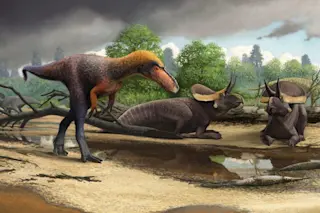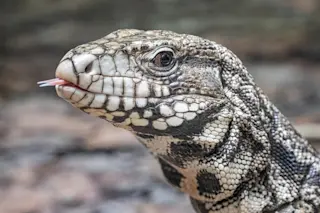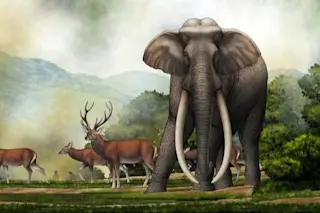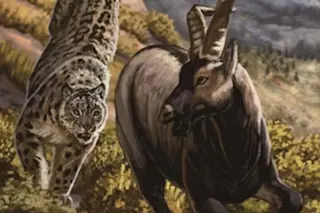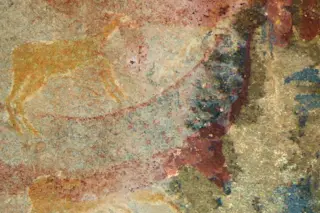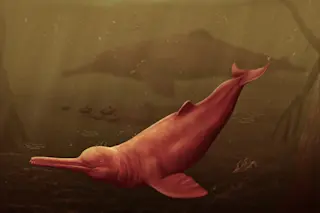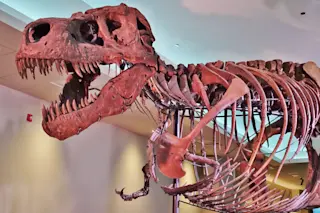The newly-discovered, small tyrannosaur, Suskityrannus hazelae, circles a pair of Zuniceratops, a small and ancient relative of Triceratops. (Credit: Andrey Atuchin) In 1902, famed fossil hunter Barnum Brown was prospecting in Montana when he discovered the first documented remains of a Tyrannosaurus rex. The creature was nearly 40 feet long with banana-sized teeth, warranting its name, “king of the tyrant lizards.” Finds since then have only reinforced T. rex’s status as one of the planet’s most ferocious predators ever. We now know that — in a world of large plant-eaters — these hunters didn’t just rely on their enormous size, they had keen senses and were surprisingly smart. But a new mystery has recently emerged. Tyrannosaurs – the family that includes T. rex and dozens of its ancestors and relatives — lived on Earth for roughly 100 million years. And for most of that time, they were relatively tiny carnivores ...
New Tiny Tyrannosaur Species Fills Gap in T. rex Origin Story
Discover the small tyrannosaur Suskityrannus hazelae, revealing secrets of tyrannosaur evolution in the Late Cretaceous.
More on Discover
Stay Curious
SubscribeTo The Magazine
Save up to 40% off the cover price when you subscribe to Discover magazine.
Subscribe

